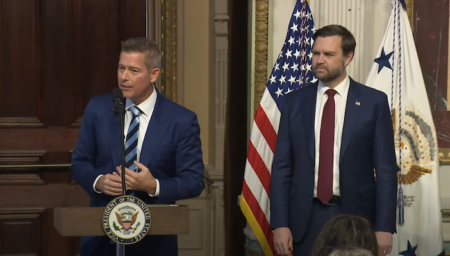A new, groundbreaking initiative – the ACES Mobility Coalition – has been launched with 10 public and private stakeholders to promote the roll out of automated, connected, electric and shared use vehicles in the USA.
As legislation is considered, the ACES Mobility Coalition has been established with a clear mission: to ensure that legal reforms should prioritize safety, equity, sustainability, and the creation of well-paying jobs in the burgeoning AV industry.
The ACES (Automated. Connected. Electric. Shared.) Mobility Coalition aims to reinstate the United States as the global frontrunner in cutting-edge mobility technology. The public members are: City of Altamonte Springs, Florida; Contra Costa Transportation Authority (CCTA); Houston Metro; Jacksonville Transportation Authority (JTA); Lynx; Metra; MetroLINK; Pinellas Suncoast Transit Authority (PSTA); and The Regional Transportation Commission of Southern Nevada (RTCNV). With the founding private member being Beep, Inc.
In pursuit of a comprehensive strategy for AV deployment, safety, and job growth, the ACES Mobility Coalition is committed to actively engaging with federal and state lawmakers, regulators, educational institutions, labor unions, nonprofit organizations, and other crucial players in the transportation landscape.

The coalition’s key focal points include:
1. Safety and Incremental Innovation at the Core: The ACES Mobility Coalition underscores the importance of an incremental approach to autonomous travel. Acknowledging that various autonomous technologies are progressing at different rates, the coalition believes that autonomous vehicles designed to operate at lower speeds within predefined environments provide the ideal avenue for promoting innovation while placing a strong emphasis on safety and gaining consumer trust.
2. Inclusivity and Job Creation: The ACES Mobility Coalition firmly stands by the principle that driverless mobility should not mean humanless mobility. Autonomous driving technology is poised to generate fresh employment opportunities in areas such as manufacturing, maintenance, software development, and remote supervision. The goal is to enhance and reinforce existing shared mobility rather than replace it. The ACES Mobility Coalition will actively advocate for policies that attract manufacturers in this next-generation technology sector and the jobs they will bring.
3. Focus on the Benefits of Shared-Use Autonomous Travel: Autonomous travel can take various forms, from freight transportation to single-occupancy personal vehicles. However, the ACES Mobility Coalition maintains a sharp focus on shared-use passenger transportation. The coalition urges Congress to ensure that reforms encompass the next generation of automated vehicles, which will be larger than personal vehicles but smaller than commercial ones. By enabling transportation planners to seamlessly incorporate autonomous, connected, electric, and shared vehicles into their networks, the coalition seeks to address fundamental transportation concerns related to road safety, connectivity, accessibility, congestion, carbon emissions, and noise pollution, all of which result from the overabundance of individual vehicles on the road and the lack of viable alternatives for shorter journeys.
The ACES Mobility Coalition eagerly anticipates collaborative efforts with federal agencies, lawmakers, and other stakeholders to shape a future where shared autonomous mobility becomes a commonality. This transition is anticipated to reduce single-occupancy vehicle trips, alleviate traffic congestion, enhance air quality, safeguard vulnerable road users, expand equitable access to transit, and facilitate safe, convenient mobility for all





